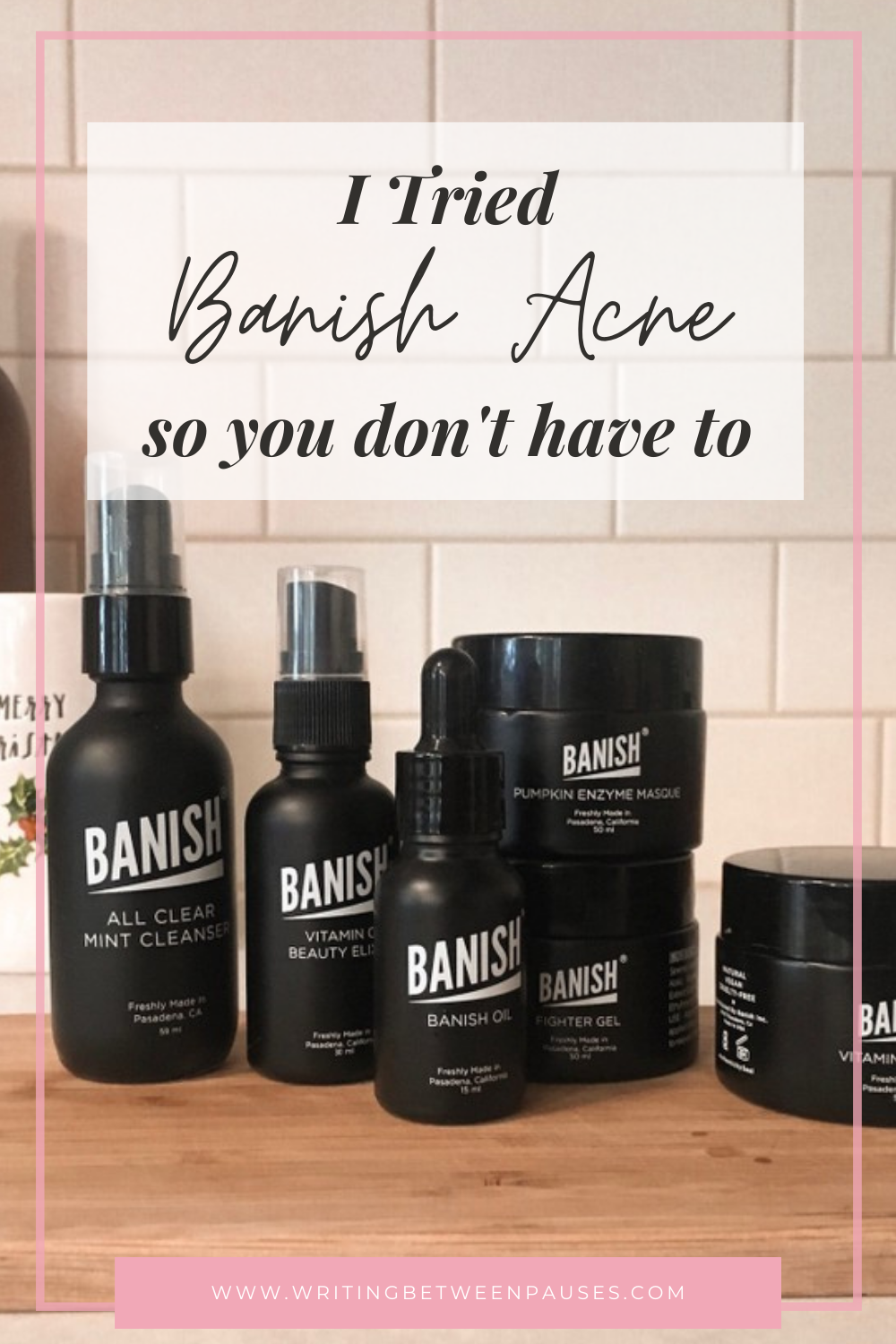Disclaimer: I received a copy of this book via NetGalley. You can read my disclosure policy here. As a warning, this review does contain significant spoilers.
Uuuuuuuuugh, where do I start with this book?
As I posted on Instagram recently, I... wanted to like it. I feel like it had a lot of good things going for it. Unfortunately, it suffered from a few flaws. But a few, I mean quite a few. By quite a few, I mean, ok, a lot. I'm trying to be nice here.
Here's a brief synopsis: Beth, formerly JJ, was abducted, alongside her best friend, Sunny, 15 years before. In the small town of Graveyard Falls, after a tornado devastates the the area, a massive graveyard full of the bodies of adolescent girls is discovered. Beth, now an FBI agent, teams up with her former high school crush-turned-sheriff (Ian, who ditched her the night she was abducted and whose stepfather was arrested for her abduction and Sunny's disappearance) to investigate the crime.
Firstly, we are introduced to FAR too many characters throughout the book. The point of view switches too many times. First we have JJ, then Beth, who is JJ, then Ian, then Prissy, then the murderer, then the Reverend, then Vanessa. It's. Just. Too. Many. It's back and forth, back and forth. I'm a firm believer in keeping point of view as simple as possible to avoid tense confusion. (I'm terrible with tense in the first place in my own writer. Don't confuse me while I'm reading too!)
I think my biggest issue with all this is the way that plot moves forward. Too much happens, but none of it makes sense or is logical. We as readers as asked to suspend disbelief too many times. Within any novel, you are suspending disbelief because novels don't necessarily represent reality, but rather an artistic representation of the world. But sometimes, it's just too much.
Firstly, Beth would not be allowed to work on a case where a girl she was kidnapped with was found. This is her case. She is investigating a serial killer that targeted her specifically. I mean, that's really the biggest suspension of disbelief: the FBI would never allow a victim to work on the case as in the capacity of an agent. There is just no way for her to remain partial regarding the case. The same goes for the main male character, Ian, whose father was arrested for Beth's abduction when they were teenagers. Guess what? He's working the case too! Two people who would never be allowed to work on a case in reality are solving it as partners. That makes absolutely no sense. The FBI would never compromise themselves or a case this way. These storylines don't stand up on shows like Bones or Criminal Minds, let alone in novels.
So, that's a shaky, rough start. One funny part at the beginning was when the "boneyard" (groan) is found. At least a dozen girls buried in a remote patch of woods. Ian, when gazing out over this field, notes that one skeleton is less deteriorated than the others. Throughout the novels, these are referred to as bones, suggesting that all of bodies have decomposed; however, they also talk about a girl who was murdered like a few weeks before. There is no way she would have been completely skeletonized at that point. Then I realized it: Rita Herron is uncomfortable writing about the actual appearance of these bodies, so she just refers to them as skeletons and the skeletons decomposing. It's so bizarre.
I also took serious issue with the introduction of Prissy: we sympathize with her, we see the unsub return to her again and again and again throughout the novel, we hope for her survival... and then she's just dead. And then, it switches and it's Vanessa! Listen, Herron, a word of advice, one writer to another: if you introduce a character like this, in jeopardy, the reader is attached. It is a bad idea to 1) kill that character, but also 2) kill that character and then have the unsub abduct ANOTHER character right after. Like, c'mon. I feel like it was only done to add time, but I feel like so much could have been cut (the constant spoon-feeding of how "broken" and "victimized" Beth was... please, gag me, the mushy romance that was just super gross at times, Ian's worries about his mom which only bother him when the book needs a little filler) to actually save Prissy and keep that tension. We spend too much time at Prissy's house, learning about her, following her, and then she's just gone... and so is the tension of the book. It falls flat on its face before the story is even resolved.
Ok, so, everyone take a seat. It's time to talk about Cocoa. The minute Cocoa was introduced (alongside her restaurant Cocoa's Cafe), I thought, "she better not be black." Guess what, guys? This book is not only operating on the assumption that the FBI would ever let a kidnapping victim investigate her own case, but it's also racist. Fun!
Hey, Rita Herron, FYI: This is racist as all hell. DO NOT compare a person of color's skin to food in your novel. And then, do not name your only POC character after that color! GOOD GOD. And then the constant, "Cocoa is the heart of this community! She takes care of everybody! She gives away food!" And yet all the kids in town are racist as hell towards her granddaughter?
Don't play that game, Rita Herron. The town you created is racist as hell and Cocoa would not be running a successful restaurant. If the kids are being racist to the granddaughter, it's because the parents are racist and while they might go to Cocoa's Cafe, they sure as hell wouldn't treat Cocoa much better. (God, I hate typing the name Cocoa.) I have trouble putting into words how inappropriate the character of Cocoa (and by extension, Cocoa's husband Deon and the granddaughter Vanessa) are, but if I'm offended and weirded out by these characters, I cannot imagine how a POC actually reading this book would react. This is the most problematic part of this book and it's because it feels so gross and so racist.
Ok, we've covered the blatant racism. Now, let's talk about how everything is spoon-fed to us.
Over and over again, Beth mulls (and mulls and mulls) over how victimized she is. How she experienced amnesia. How she needs to just remember. She just tells us these things. We aren't ever shown these things. Occasionally, Beth blanks out and freaks out over something, like the Deathscape game or a picture. This is not only super unprofessional, but it makes me think: How would Beth EVER pass the FBI psych test? (Hint: she probably wouldn't. Sorry, Beth/JJ/whatever.) It's all so blatantly spoon-fed to us and as a reader, it feels like pandering. I don't want Beth to tell me over and over that she's been victimized, but she's ok, but she's scared, but she's fine, really, but she's freaking out at a blood donation van. Like, ok, maybe just show me these things and let me draw the conclusion on my own? As a reader? Which is the job of the reader?
The same goes for everything with Ian. We are spoon-fed everything about Ian, but my only takeaway regarding Ian is that he is super inappropriate with his female coworkers and he needs to calm down. Dude, don't be nasty. We're supposed to feel bad for him because his (step)father was arrested for Beth's abduction, but all the evidence pointed to his stepfather and I can't actually find any point where Ian shows genuine emotion for his stepfather. We're just told he does, but that's not the same as actually seeing. As every creative writing teacher has ever said ever: show, don't tell, stupid.
Let's talk about how terrible at his job Ian is. In the first 25% of the book, right after Ian knows to look for someone obsessed with religious symbols and lives in the remote mountains around town, Cocoa herself tells him that a guy who lives in the mountains (ding) is painting religious paintings (ding) for an auction for the town. IAN, GET THAT GUY'S NAME. Cocoa just did at least 50% of your job. Why are you so bad at your job?? Multiple people mention this guy to Ian and he just ignores it. But when I first read it, I was like, "it was that guy." Guess what? It's not. But they DO arrest that guy near the end of the book. We could have literally skipped half of this terrible novel if Ian would just listen to the poor woman.
Also, I refuse to believe that there are THIS MANY DUDES in a tiny town with only one restaurant obsessed with punishing 14-year-old girls, bloodletting, and religious symbology. It's another suspension of disbelief because, prior to this novel, two separate serial killers were found in this small town. So in this novel alone they arrest the actual serial killer plus a guy who was punishing girls and performing exorcisms with bloodletting plus a guy who paints religious symbology in blood. That's just too much in one small town. The serial killer aspect is fine, but the larger narrative of this religious cult that is obsessed with punishing 14-year-old girls for being "sinners" requires me to believe that men are just absolute scum and feminism teaches me otherwise. No thank you.
Another big glaring FBI issue: when the director tells Beth she's off the case and she disobeys him. He says she's too close to the case (which he would have never allowed her onto in the first place, but whatever) and tells her she's on a break. She doesn't and Ian doesn't care. She would be fired immediately. ASAP. The FBI don't give a hoot. Also, when she shoots the coach? Yeah, her gun would IMMEDIATELY be confiscated as evidence, no exceptions. The director wouldn't "let her keep it because she needs to protect herself." No. It's evidence. She shot someone! This isn't how investigations work! She had also been kicked off the case at that point, so technically she's a rogue agent who just shot a civilian. She would be in handcuffs. I can't. It's so unrealistic.
When I originally wrote my review on Goodreads, I forgot to include the dumbest part: at the end of the novel, Ian tracks Beth down in Knoxville (so... ugh, romantic?) and proposes. They've been friends for about 2 weeks at this point. Beth shot his dad. And he proposes? Ok, sure, that's how romantic relationships work. It's so gross. It feels like Beth is just like, "ok, I'm healed now! I went through some stuff and wasn't ok, but now I'm ok because I have a man!" And I just... I would like Beth to go to therapy and really think about if she likes Ian or not. Because Ian's gross.
There's so much more I could talk about. I wanted to like this novel because the serial killer aspect is so good and the crime is actually really convincing. I like Beth as a character when we aren't being spoonifed every single aspect of her personality. There are just so many issues that detract from what sounds like a good prompt. I wish it was better. But it's not.
To read my original view on Goodreads (and follow my reviews!), click here. If you like the content here on Writing Between Pauses, I'd love if you'd take a second to subscribe to my newsletter.
















